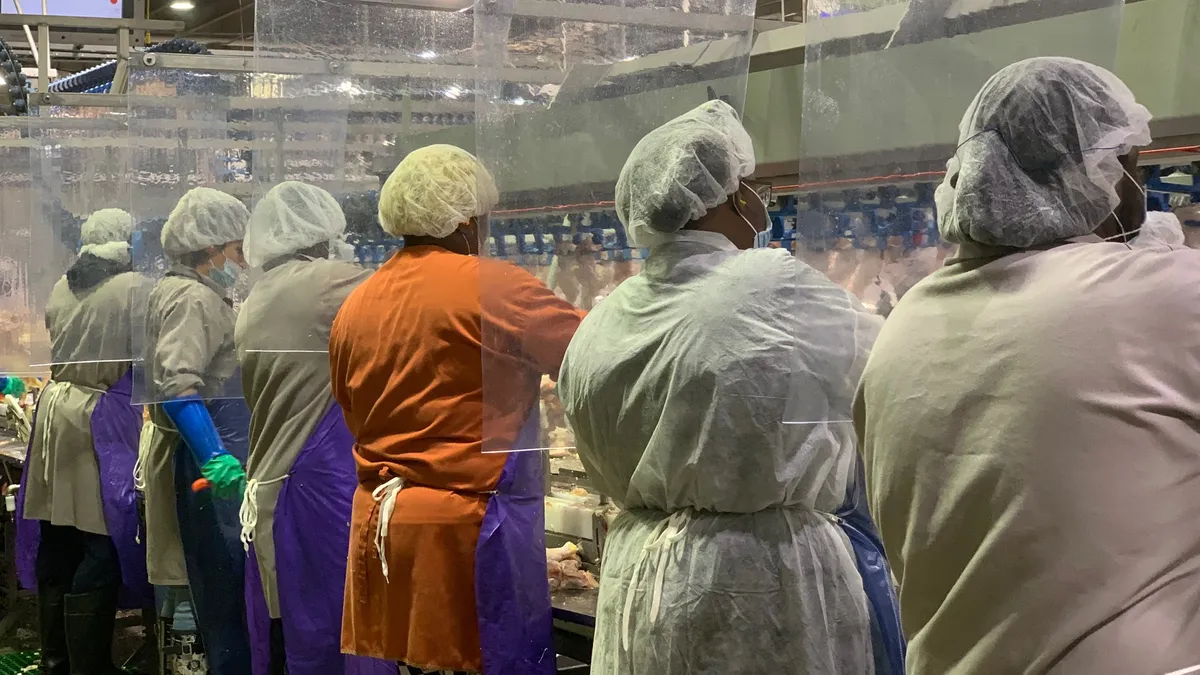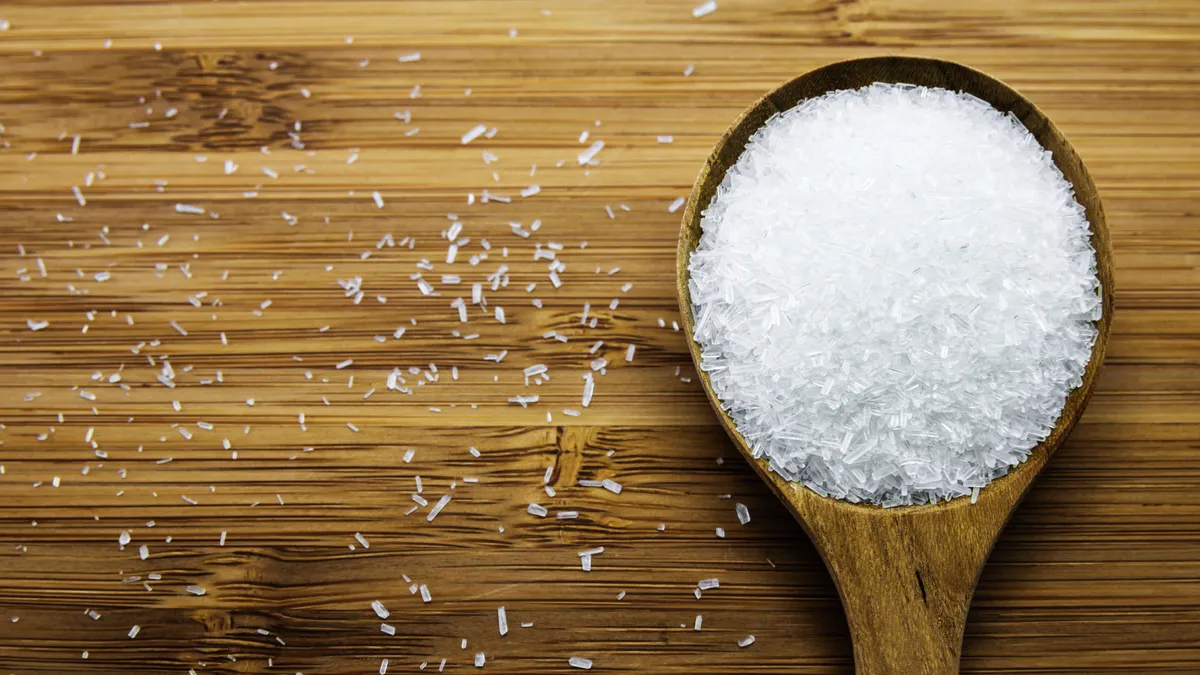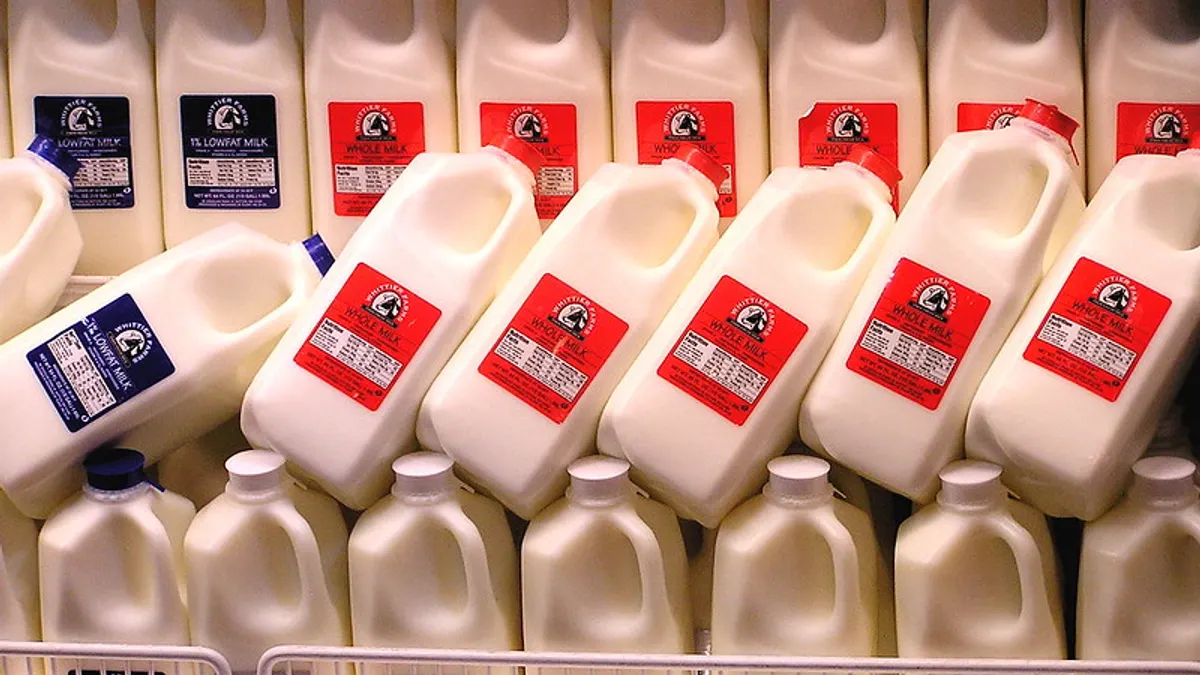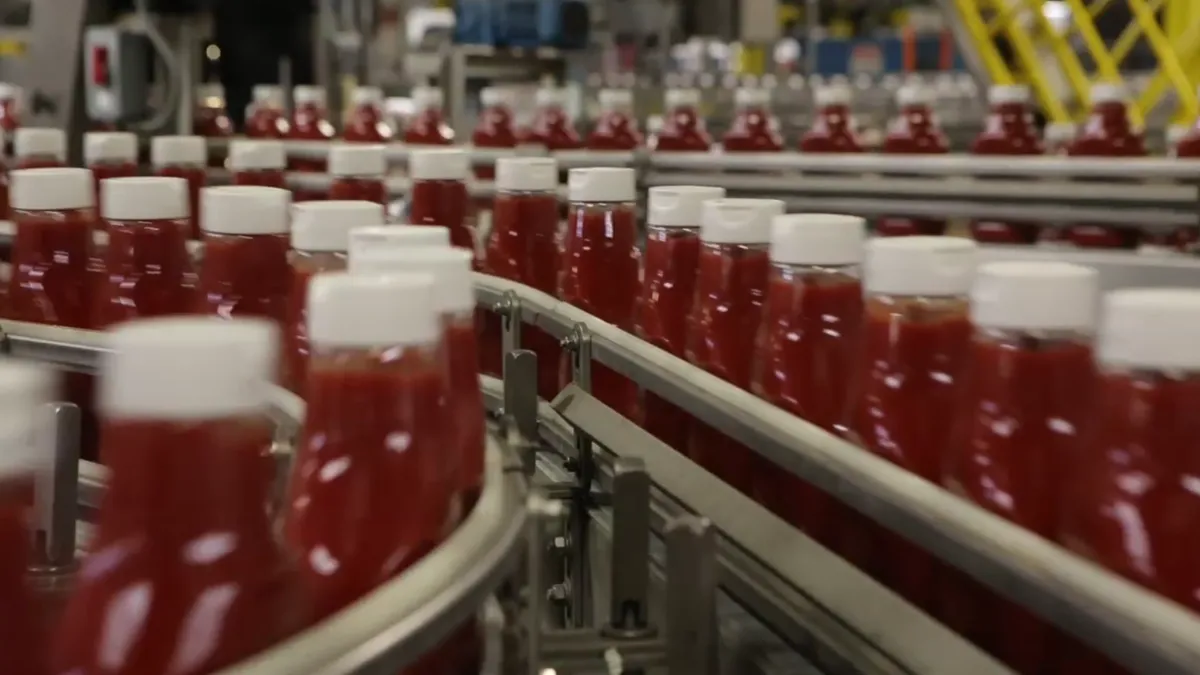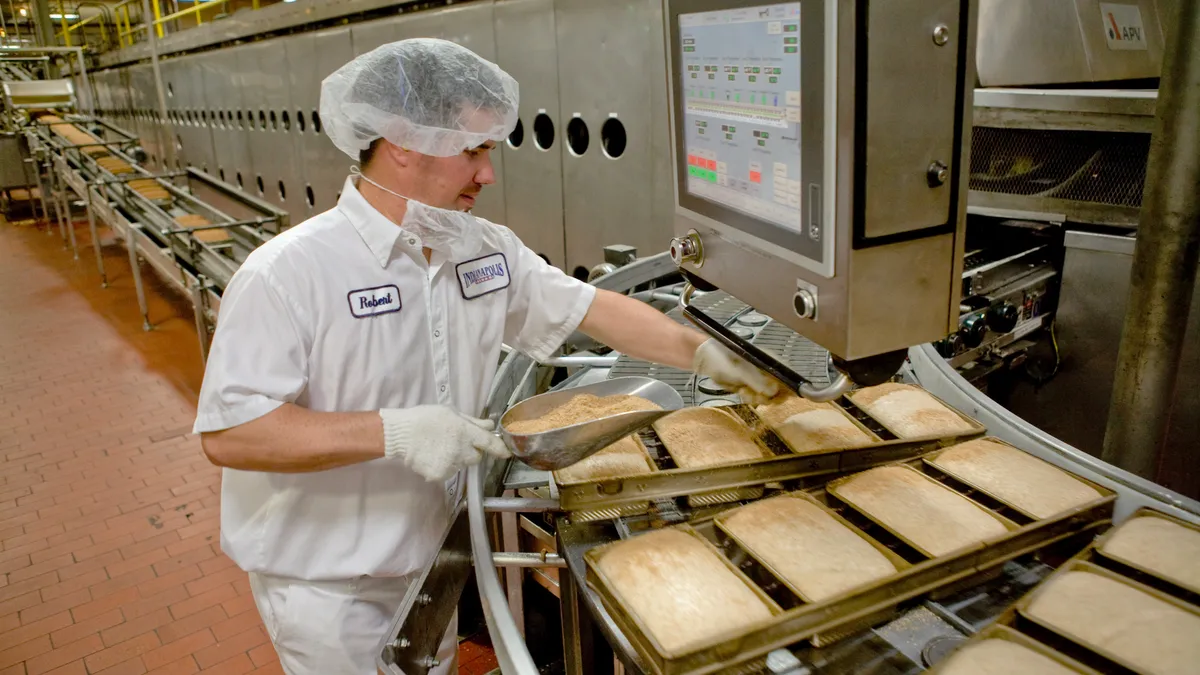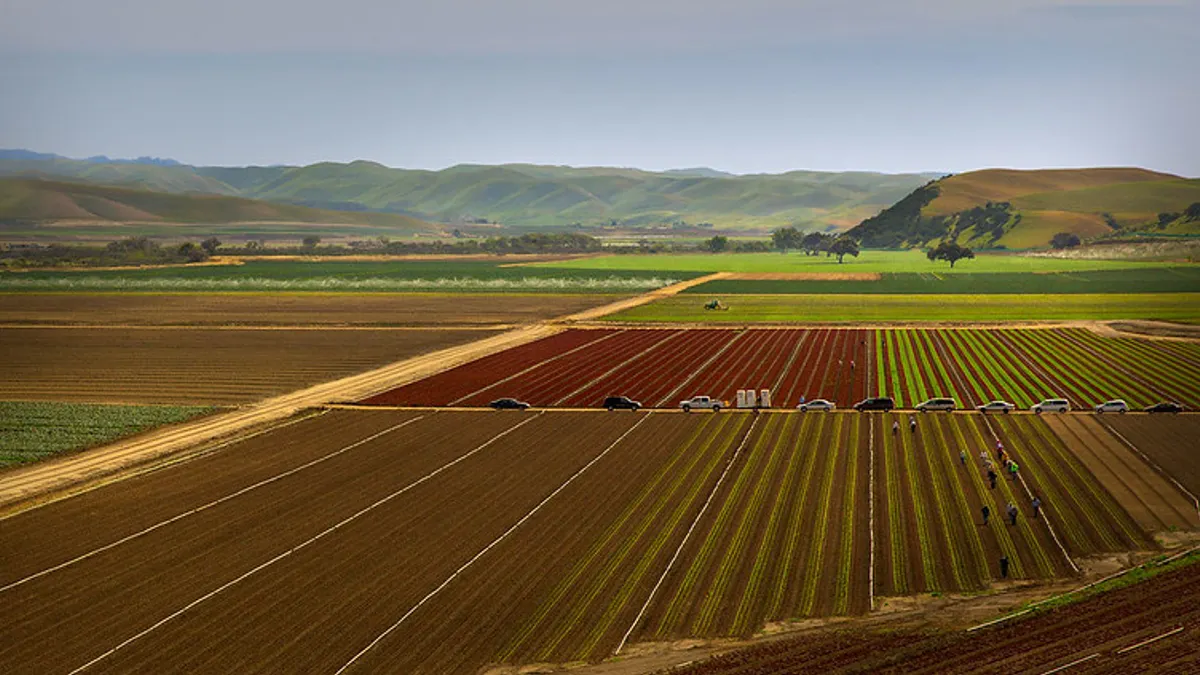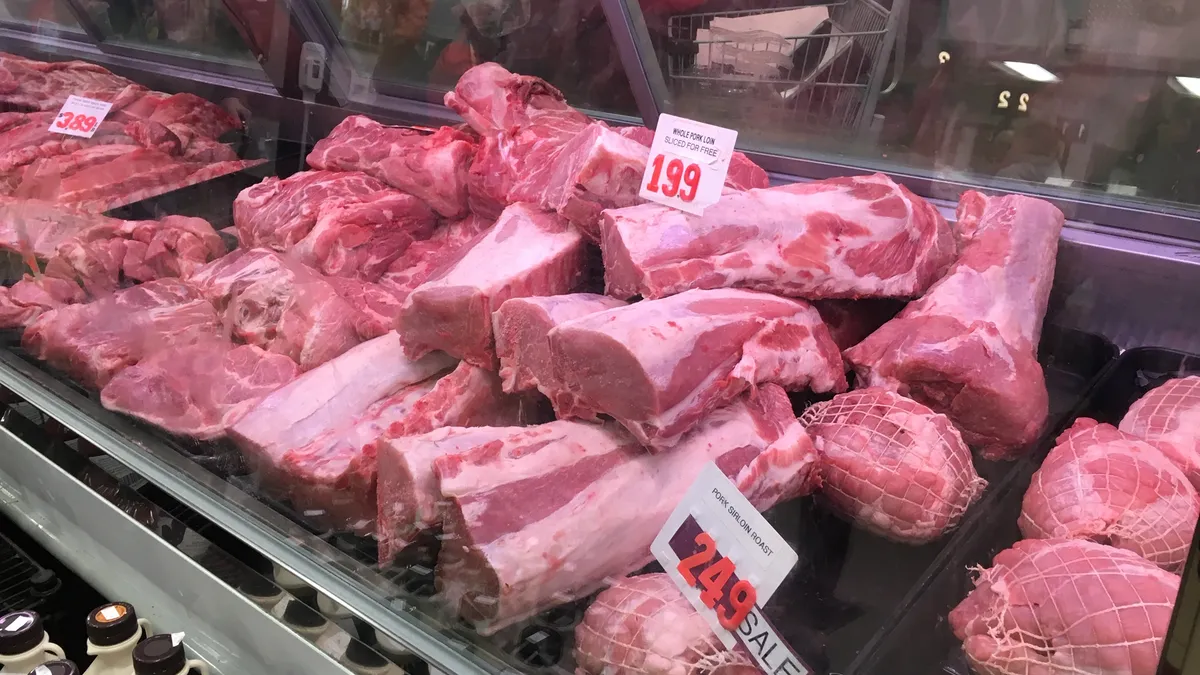Policy: Page 22
-
Trump orders meat plants to remain open despite outbreaks
As the number of plant closures continue to rise and supply concerns grow, the president invoked the Defense Production Act to keep production running.
By Lillianna Byington • Updated April 29, 2020 -
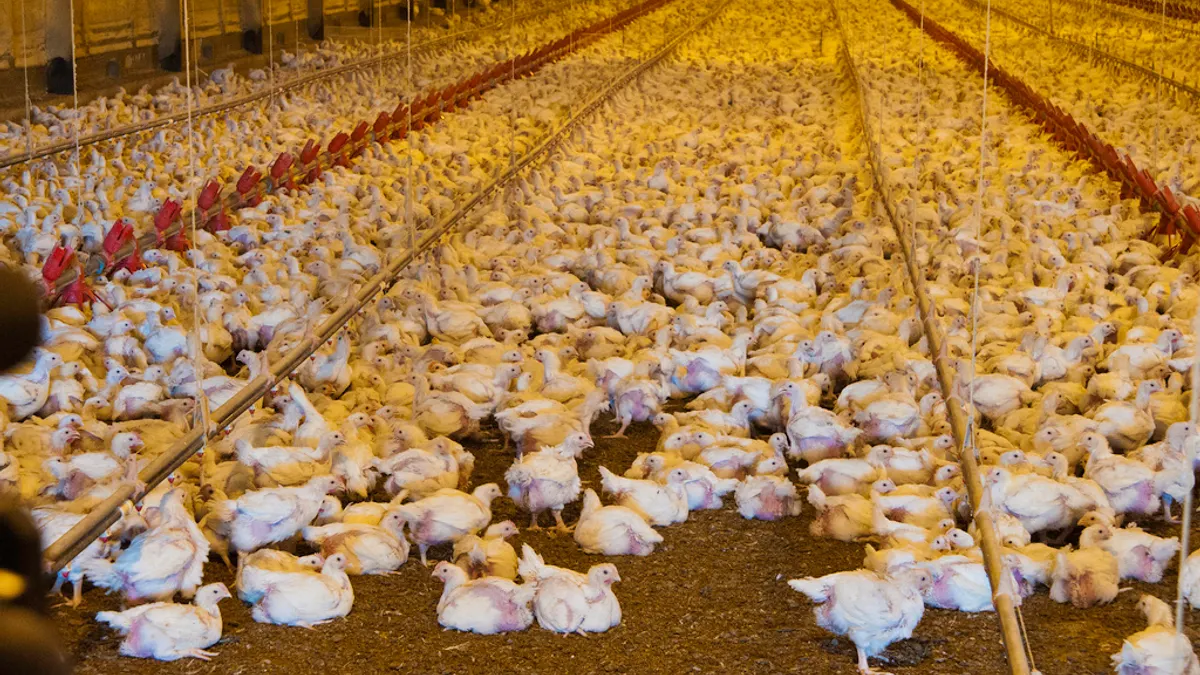
 Bob Nichols. (2013). "20130822-OC-RBN-2946" [photograph]. Retrieved from Flickr.
Bob Nichols. (2013). "20130822-OC-RBN-2946" [photograph]. Retrieved from Flickr.
2M chickens euthanized as coronavirus shuts down meat processors
As animals who were raised for the processing plants grow, producers are running out of room to keep them.
By Megan Poinski • April 28, 2020 -
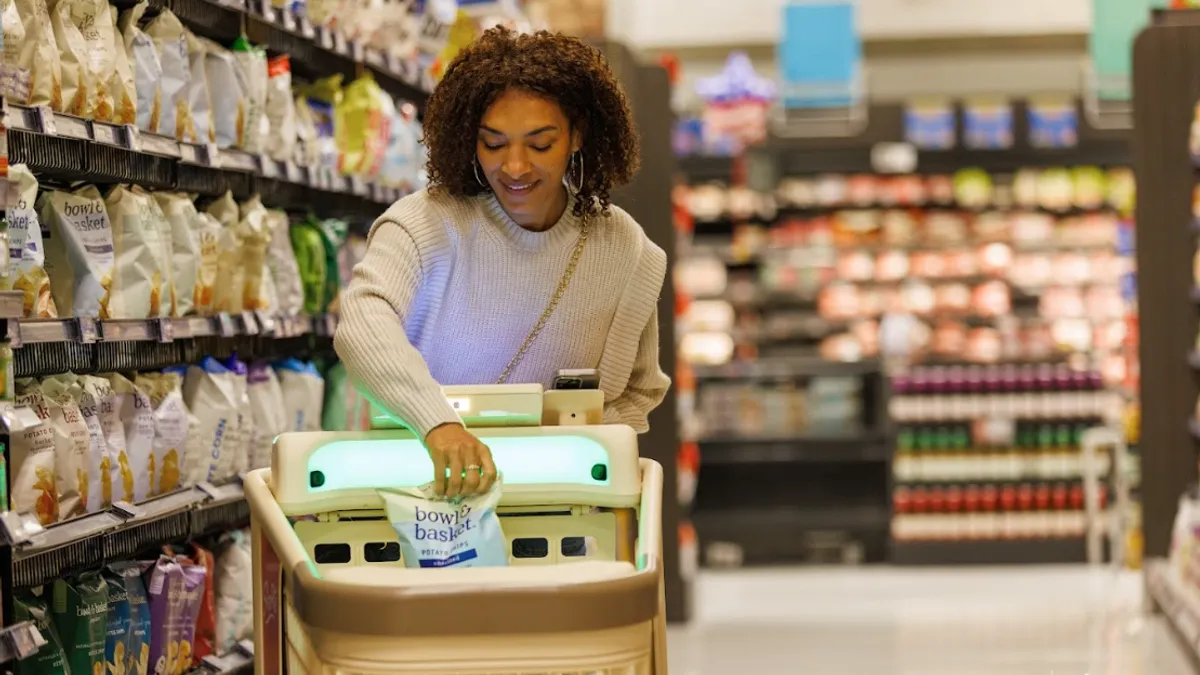 Explore the Trendline➔
Explore the Trendline➔
 Courtesy of Instacart
Courtesy of Instacart Trendline
TrendlineTop 5 stories from Food Dive
The food and beverage industry is changing rapidly and the actions companies take this year are likely to play a major role in defining their future.
By Food Dive staff -
Cal-Maine accused of price gouging in Texas lawsuit
The country's largest egg producer denies the accusation, saying spikes of about 300% came from "unprecedented retail demand."
By Megan Poinski • April 27, 2020 -
Virginia governor signs bill to regulate CBD in food
Despite federal prohibitions, the state's bill is intended to help guide the hemp industry by regulating facility conditions and production requirements.
By Lillianna Byington • April 21, 2020 -
How the federal $19B coronavirus relief fund can help farmers and food producers
After weeks of industry groups and companies asking for financial support, the department will purchase $3 billion in fresh produce, dairy and meat to distribute through the nation's food banks.
By Jessi Devenyns • April 21, 2020 -
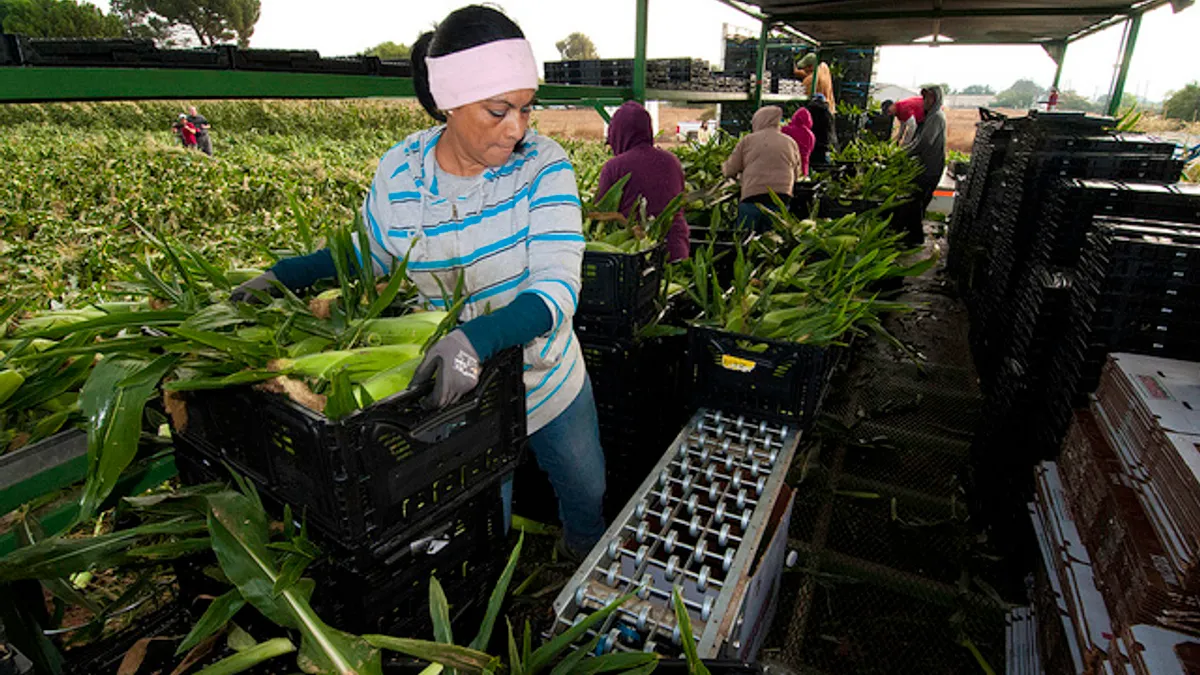
 Bob Nicols, USDA. (2013). "20130828-OC-RBN-3316" [photograph]. Retrieved from Flickr.
Bob Nicols, USDA. (2013). "20130828-OC-RBN-3316" [photograph]. Retrieved from Flickr. Opinion
OpinionCOVID-19 and our food system: What we need to do now
In a world where fear dominates headlines and infects dialogue, Clareo's Scott Bowman writes about three ways to shift from anxiety to action to protect the safety and supply of food.
By Scott Bowman • April 21, 2020 -
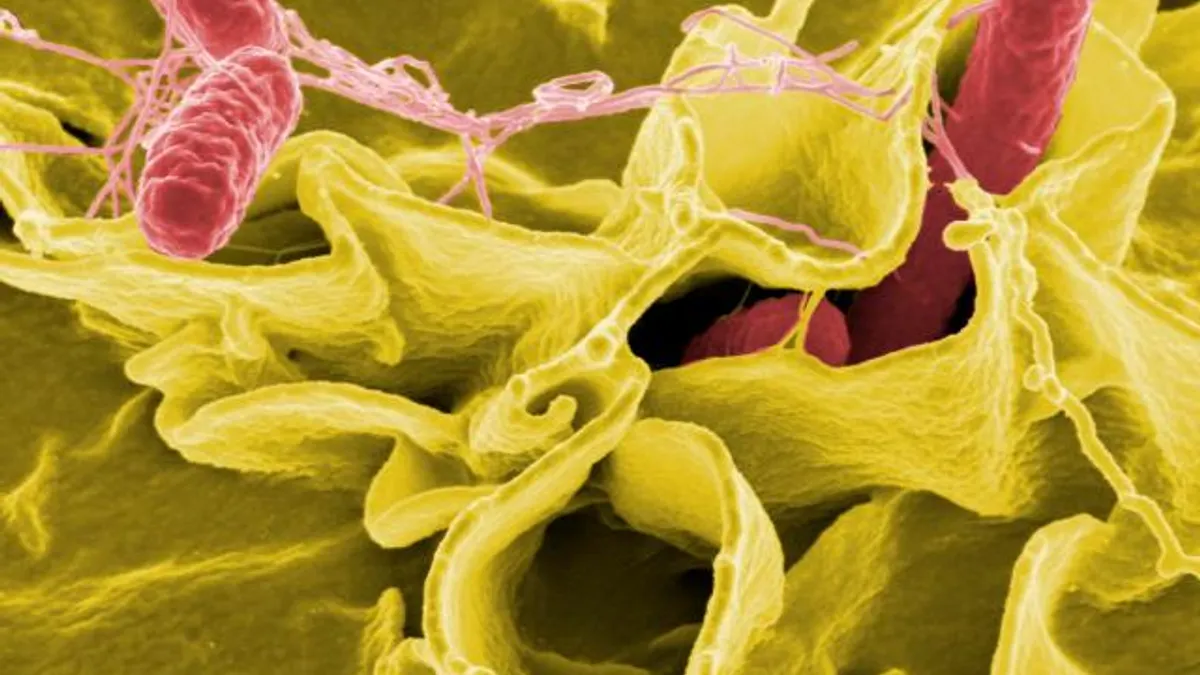
 NIAID. (2008). "Salmonella Bacteria" [photograph]. Retrieved from Flickr.
NIAID. (2008). "Salmonella Bacteria" [photograph]. Retrieved from Flickr.
Salmonella vaccine will be commercialized in new partnership
Kemin and Pacific GeneTech's solution could help producers raise free-from antibiotic flocks and protect consumers from the bacteria that is the leading cause of foodborne illness.
By Jessi Devenyns • April 17, 2020 -
Deep Dive
From the blacklist to the spotlight: How MSG is staging a comeback
Ever since a 1968 editorial, consumers have shied away from monosodium glutamate, but manufacturers have continued to use it. Now the ingredient is beginning to lose its bad reputation.
By Megan Poinski • April 16, 2020 -
PureCircle files another lawsuit claiming stevia patent infringement
The company's third patent case since 2017 claims Almendra's Steviarome product has aspects that too closely match its own.
By Megan Poinski • April 16, 2020 -
Virginia milk labeling bill vetoed
Gov. Ralph Northam wrote restricting the label to products from animals could hinder businesses' ability to thrive and may violate free speech.
By Megan Poinski • April 16, 2020 -
Deep Dive
Antitrust concerns cloud DFA's purchase of Dean Foods' assets
Although the bankruptcy court approved the sale, it needs the U.S. Department of Justice to sign off. Some are hoping that roadblock will stop the deal.
By Lillianna Byington • April 16, 2020 -
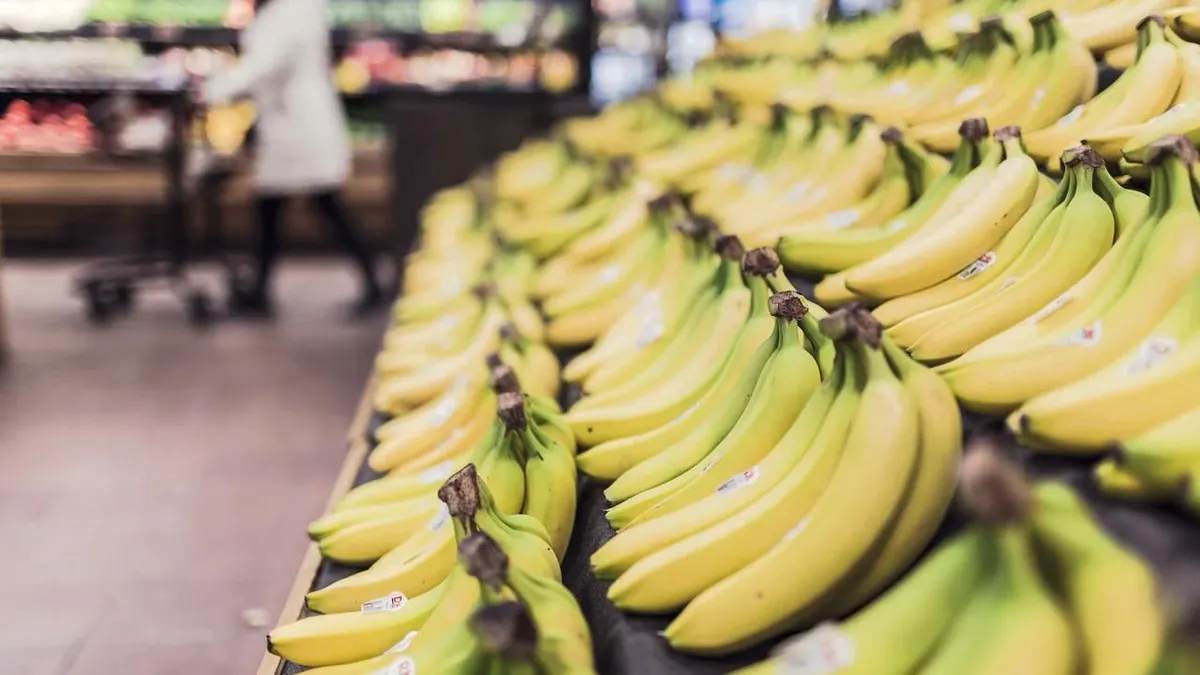
 Retrieved from Pixabay.
Retrieved from Pixabay.
Banana exports from the Philippines may drop 40% amid coronavirus
Quarantine measures are hurting the second largest exporter of the fruit, which accounts for 20% of global banana production and 90% of total exports to Asia.
By Jessi Devenyns • April 16, 2020 -
Molson Coors expands partnership with Hexo to launch CBD beverages in Colorado
The new joint venture called Truss CBD USA will be majority owned by the beer giant. The two companies already developed a beverage for Canada.
By Lillianna Byington • April 15, 2020 -
Trade group asks government to ensure food workers have protective equipment
The Consumer Brands Association said some state agencies are confiscating thermometers and face masks meant for industrial use, placing essential employees at risk.
By Jessi Devenyns • April 15, 2020 -
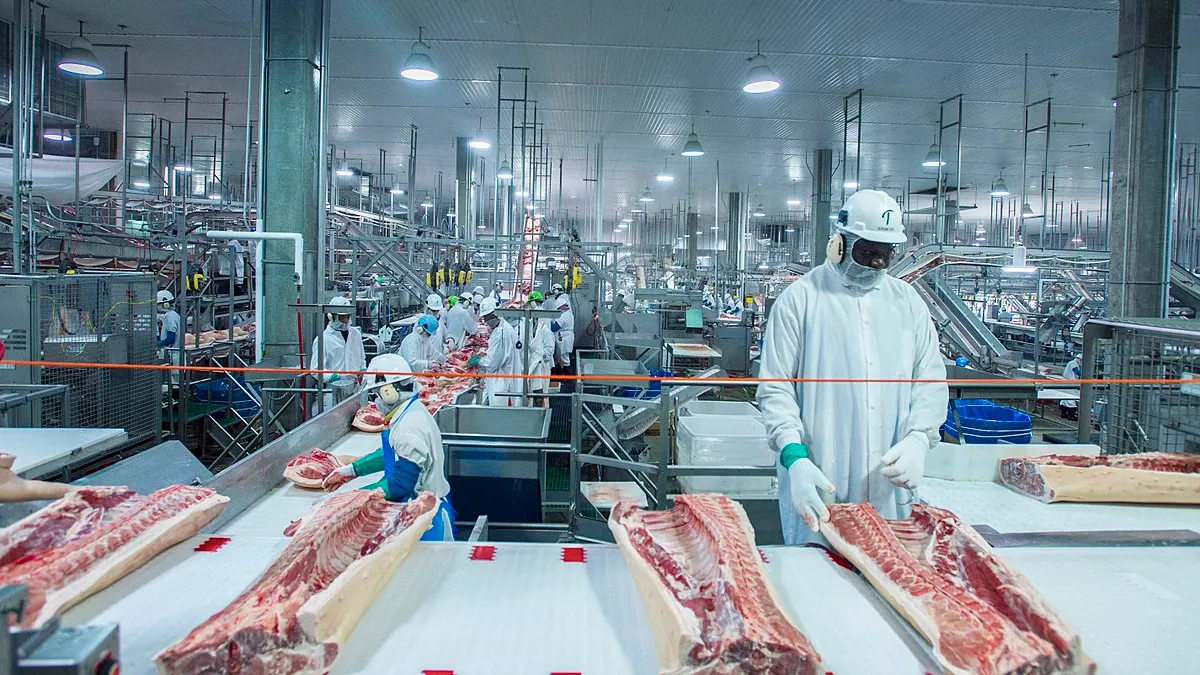
 USDA. (2017). Retrieved from Flickr.
USDA. (2017). Retrieved from Flickr.
More meat plants close as employee coronavirus outbreaks grow
Cargill, Maple Leaf and Smithfield Foods are the latest companies to suspend production at processing facilities as workers test positive for COVID-19.
By Jessi Devenyns • Updated April 9, 2020 -
Kraft Heinz breaks output records during coronavirus pandemic
The mega-manufacturer is working around the clock at its 39 factories across the U.S. — and will keep going as long as there is demand, said Mitch Arends, senior vice president of operations and manufacturing.
By Megan Poinski • April 3, 2020 -
Food tech startup reshapes strategy as coronavirus closes down lab work
The pandemic has prompted Clara Foods, the manufacturer of animal-free egg whites, to narrow its research efforts and could delay partnerships the company forges with CPGs to use its product.
By Christopher Doering • April 1, 2020 -

 Bob Nicols, USDA. (2013). "20130828-OC-RBN-3316" [photograph]. Retrieved from Flickr.
Bob Nicols, USDA. (2013). "20130828-OC-RBN-3316" [photograph]. Retrieved from Flickr.
Farmworker visas got easier to obtain, but will that solve the industry's problems?
The State Department is waiving interview requirements for many of the applications, but the threat of the ongoing pandemic still looms.
By Jessi Devenyns • March 31, 2020 -
How identifying root causes could help prevent foodborne illness outbreaks
With the food supply ravaged by a series of recalls, the Pew Charitable Trusts urged more companies and government agencies to use this approach to investigate contamination incidents.
By Lillianna Byington • March 25, 2020 -
Raisins have more pesticides than the 'Dirty Dozen' produce, report finds
In the fresh produce category, strawberries, spinach and kale again took the top three spots on the Environmental Working Group's list for having the largest amount of the controversial substances.
By Jessi Devenyns • March 25, 2020 -
Food manufacturing will stay healthy during coronavirus, trade groups say
Leaders of the Consumer Brands Association and the American Bakers Association told Food Dive their members are rising to the challenge and see no shortages of the basics.
By Megan Poinski • March 24, 2020 -
Opinion
How companies can cope as coronavirus impacts the food chain
Businesses need to remain vigilant in assessing their risk while mitigating against significant dangers and disruptions from the disease, said Steven P. Blonder, a principal at Much Shelist.
By Steven P. Blonder • March 23, 2020 -
What will happen to the produce industry after coronavirus shut down visa processing?
The policy shift to limit the virus' spread is likely to hamper this season's planting and harvesting since fruit and vegetable growers heavily rely on foreign workers.
By Cathy Siegner • March 20, 2020 -
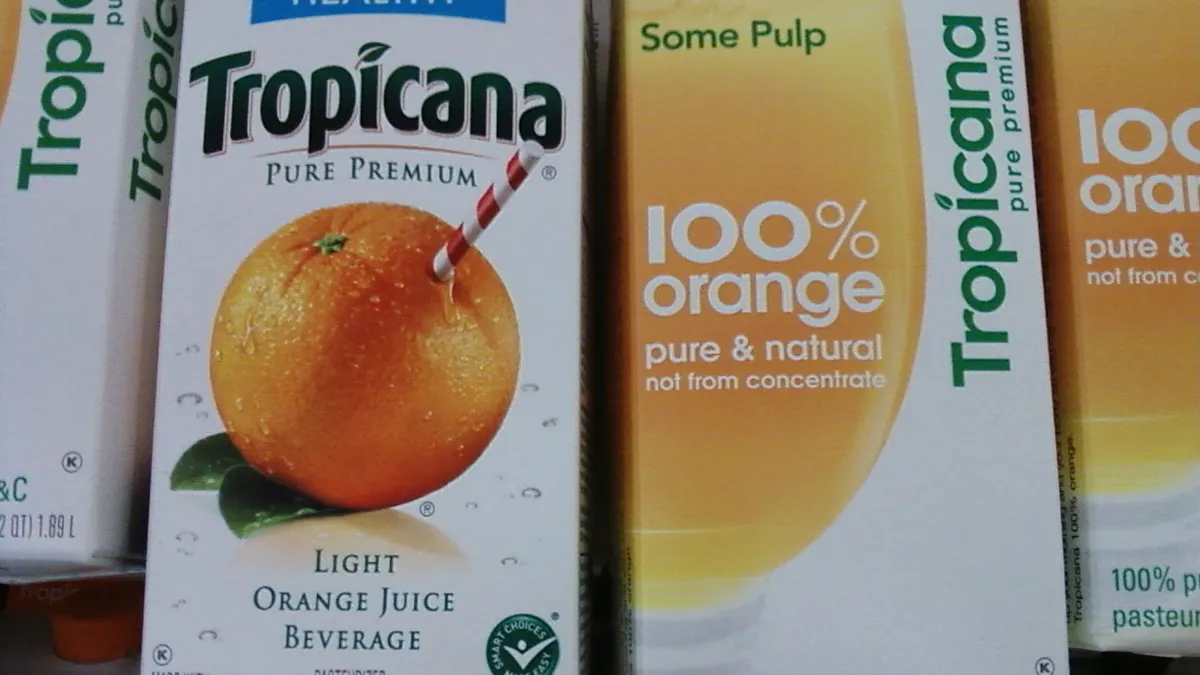
 j_lai. (December 20, 2008). "tropicana - old and new". Retrieved from https://www.flickr.com/photos/jlai321/3123175118.
j_lai. (December 20, 2008). "tropicana - old and new". Retrieved from https://www.flickr.com/photos/jlai321/3123175118.
Tropicana sued over presence of malic acid in 'natural juices'
Plaintiffs claim the PepsiCo-owned brand is deceiving customers by not disclosing on product labels that several of its juice-based beverages contain artificial flavors.
By Cathy Siegner • March 19, 2020 -
USDA sets parameters for items labeled 'healthy'
Food products could use this claim if their fat profile contains mostly mono and polyunsaturated fats or a serving has at least 10% of the government-set daily value of potassium or vitamin D.
By Megan Poinski • March 18, 2020

